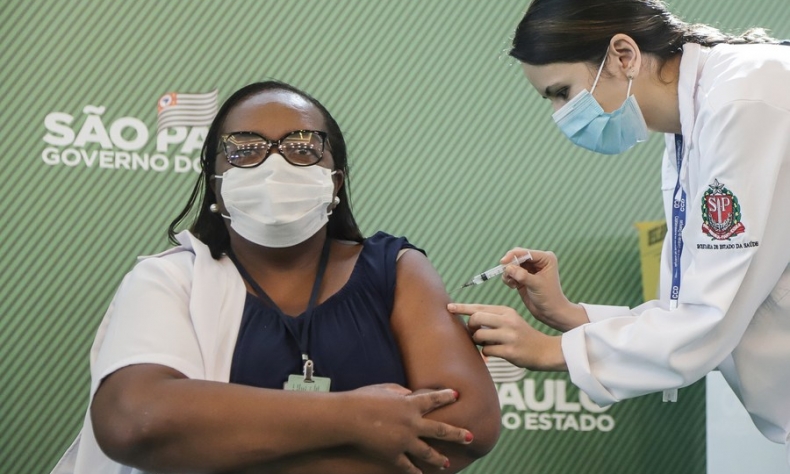Why International Cooperation Is Key to COVID-19 Containment

We have a world to vaccinate, and the more countries pool together their resources and visions, the faster this crisis can be overcome.
In a world beset by the novel coronavirus disease (COVID-19), never has global cooperation been so urgent. The world needs cooperation not only to combat the virus through medical support and assistance, but also in terms of distributing vaccines.
China is placing itself in a pivotal position to assist countries in need, be it via financial assistance, donations or joint production and distribution. This virus is a global challenge, and it is fundamentally wrong for certain countries to position themselves first or see this pandemic through the medium of profit.
A linked world
In dialogue and speeches from China’s leaders, we repeatedly hear the phrase “a community with a shared future for humanity.” What does that mean? And what is its significance?
The statement makes reference to the phenomenon of globalization and integration between countries, wherein owing to the impact of technology and telecommunications, the world is becoming an increasingly smaller, more connected and tightly knit place. Major events in countries, whether they are economic, political or natural, do not respect national borders and as a result increasingly have consequences for others too.
Therefore, the statement implies that humanity, as one increasingly interdependent world, has to work together in order to solve the common problems and challenges they face, for the greater good.
A climate crisis in Australia, for example, is a climate crisis for the world. An economic crisis in America or China has repercussions for markets globally. Humanity no longer lives in isolated and discrete communities that do not depend on each other and do not contact each other. Everything in our world ultimately has global implications, from the goods we buy to the cultural products that we watch and absorb.
As a result, China’s leaders echo this statement in calling for a common diplomatic resolve to various global challenges, and warn against phenomena which disrupt it including protectionism, geopolitical divides and unilateralism. During this pandemic, upholding the concept is pivotal to the vaccine distribution and epidemic combat.
A world of unequals
Although a number of vaccines have now been developed and are in early use, their distribution throughout the world has been fundamentally unequal. In a nutshell, wealthy countries have monopolized their usage and placed themselves at the front of the queue for receiving vaccines, neglecting nations that do not have the financial resources and scientific capabilities to help themselves.
Traditionally, the West would support the non-West, assuming that they would never be in a position to have to fight a disease outbreak. However, because Western nations have been overrun by the virus, they are forced to put themselves first. For example, Canada is reported to have acquired 10 vaccines for every single person in the country, using firms such as Pfizer, while other countries such as the United States are taking a path of “vaccine nationalism” and refusing to cooperate with others. This reduces the options for poorer countries in acquiring vaccines, which are forced to wait until potentially 2022 or 2023.
In addition, the problem of private profit has been an obstacle too. Should the vaccine be a free good and patent for all humanity? Or should it be owned by a single company that subsequently profits from keeping it private?
Western countries have insisted on the latter, blocking proposals at the World Health Organization by developing countries to share vaccine information in the name of “intellectual property.”
Pfizer is first and foremost a business. As a result, the global vaccine market is distorted as poorer countries are denied the right to access and replicate its ideas. They must purchase the product instead of producing it themselves, and in line with that such products are typically expensive.
In addition, many developing countries simply do not have the supply chain logistics to freeze the Pfizer vaccine to the temperature of minus 70 degrees Celsius that it requires to be functional.
Ultimately, the overall situation is unequal.
China’s promise
This outlook is why the notion “a community with a shared future for humanity” ultimately matters.
China is not following the same logic of Western nations and their big pharmaceutical companies. The ability of China to contain the virus at home has made the situation less urgent than in the West, and Chinese President Xi Jinping has pledged to make China’s vaccines a public good and to distribute them to countries, especially in Africa, providing assistance if necessary.
Joint production is also on the cards. A growing number of countries have acquired China’s products, most prominently in Southeast Asia, Latin America and the Middle East. Indonesia for one is relying heavily on Chinese products as vaccines like Pfizer’s are simply too expensive and unfeasible for a developing tropical island archipelago of over 200 million people.
Although the Western media has worked heavily to baselessly discredit China’s vaccine products, they are ultimately making the difference for many people around the world and thus giving countries the power to lift themselves out of the pandemic and reboot their economies, something that waiting for the West would not help.
COVID-19 does not respect borders and due to its often asymptomatic spread, can pop up anywhere undetected. It is fundamentally wrong that some countries have attempted to stigmatize and shift domestic blame on others for an issue that the world must work together on. Pointing fingers and calling others out will not make this disease go away.
In practice, goodwill cooperation and diplomacy are key. We have a world to vaccinate, and the more countries pool together their resources and visions, the faster this crisis can be overcome.
 Facebook
Facebook
 Twitter
Twitter
 Linkedin
Linkedin
 Google +
Google +







